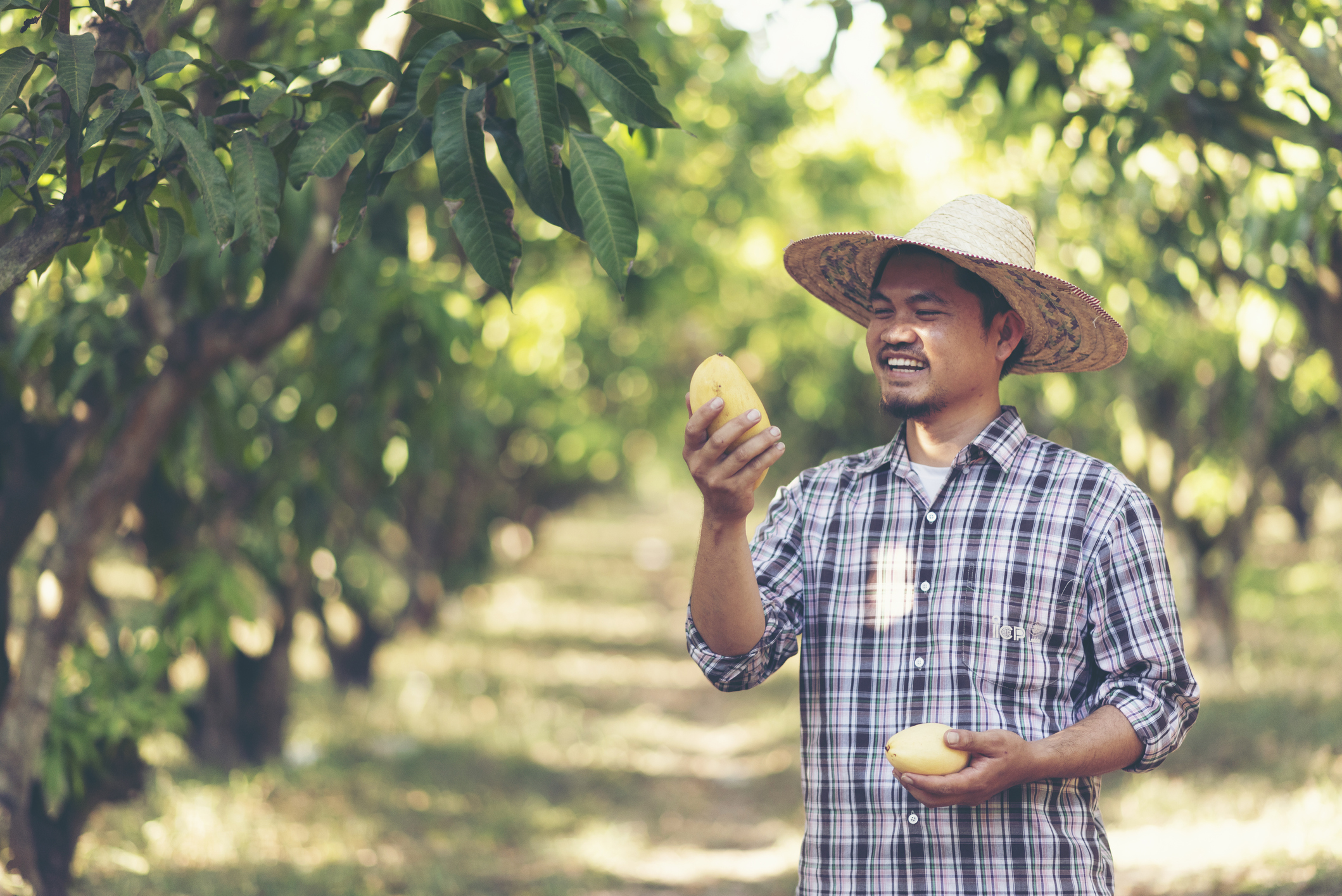Fancy A Glass Of Mango Wine?
25 Mayo 2020

A new study demonstrates the value of using metabolomics and flavoromics for optimising ‘Nam Dok Mai’ mango winemaking processes to improve its quality.
Mango (Mangifera indica Linn) is the seventh highest fruit produced worldwide after bananas, grapes, oranges, apples, coconuts and plantains. In Thailand, several mango cultivars are eaten as ripened fruit, including the ‘Nam Dok Mai’ variety, which is popular because of its unique aroma and taste.
Unfortunately for mango producers, the fruit deteriorates rapidly and has a short shelf–life. Although excess mangoes are often preserved into products such as dried slices and pickles, producing wine from low–quality fruit offers another opportunity to improve their value. But processes for the large–scale production of high–quality mango wine aren’t well–established. We first need to improve our understanding about how different factors, such as the fermentation temperature and yeast strains, interact together to define the overall chemical composition, flavour and quality of the end–product.
Gaining Insight From Analytical Chemistry
In a new study, published in Food Bioscience, scientists use advanced metabolomics and flavoromics to monitor chemical and flavour changes in ‘Nam Dok Mai’ mango wine during its fermentation and storage.1
The researchers fermented 30% mango juice in the laboratory for 18 days – and then bottled and stored the wine for three months. They collected a series of samples over this time course, which they extracted, fractionated and prepared for metabolomic analysis using gas chromatography with flame ionization detection (GC–FID) – and for flavoromics analysis using gas chromatography–time–of–flight–mass spectrometry (GC–ToF–MS). During their experiments, they used pure water generated from an ELGA PURELAB® laboratory water purification system to minimise the chance of introducing contaminants that may affect their results.
Identifying Compounds
The team successfully identified 56 metabolic compounds, accounting for around 40% of all metabolites in the mango wine during processing and storage. These could be divided into four main groups: fatty acid methyl esters (FAME compounds), polar lipid compounds (free fatty acids, fatty alcohols and phytosterols) and sugar compounds. They also identified 73 volatile compounds, covering around one–quarter of all the flavour components in the mango wine. These could be arranged into eight groups: esters, alcohols, ketones and aldehydes, terpenes, volatile acids, furans, phenol and lactone.
The researchers then carried out statistical analyses to gain a better understanding of the interactions between the metabolites and flavour constituents in the wine at different stages of processing. Their results showed that FAME, free fatty acids, fatty alcohols, sugars and terpenes decreased during fermentation – while the acids, glycerol, ethyl esters and higher alcohols increased. The researchers also identified potential compounds that could also help with quality control – for example, markers that could flag contamination with lactic acid bacteria or specific types of fermentation.
A Useful Monitoring Tool
This study sets out an effective new tool to enable the comprehensive tracking of dynamic metabolomic and flavoromic changes during mango wine fermentation and storage. It could prove a useful approach for identifying and monitoring key metabolites responsible for the formation of important fragrant flavour compounds during production – helping to optimise conditions and improve the quality of mango wine.
Why Choose ELGA LabWater?
ELGA’s expert engineers, chemists and scientists are at the forefront of technological innovation. We continue to introduce game-changing features to the laboratory water market.
Reference:
1. Wattanakul, N. et al. Integrative metabolomics–flavoromics to monitor dynamic changes of ‘Nam Dok Mai’ mango (Mangifera indica Linn) wine during fermentation and storage. Food Bioscience 2020; 356: 100549
Dr Alison Halliday
After completing an undergraduate degree in Biochemistry & Genetics at Sheffield University, Alison was awarded a PhD in Human Molecular Genetics at the University of Newcastle. She carried out five years as a Senior Postdoctoral Research Fellow at UCL, investigating the genes involved in childhood obesity syndrome. Moving into science communications, she spent ten years at Cancer Research UK engaging the public about the charity’s work. She now specialises in writing about research across the life sciences, medicine and health.
